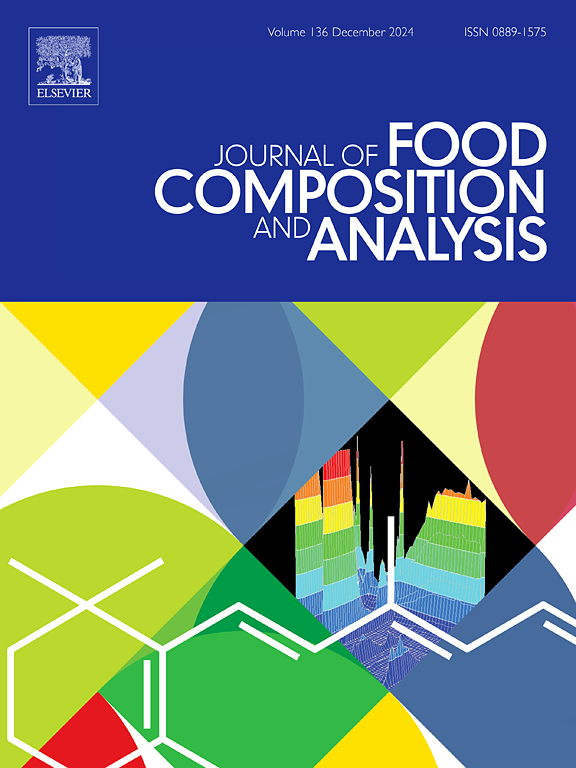24小时召回软件的开发和可行性,以表征智利饮食
IF 4
2区 农林科学
Q2 CHEMISTRY, APPLIED
引用次数: 0
摘要
饮食评估对于跟踪营养改善情况至关重要,尤其是在弱势群体中。然而,使用标准化方法收集饮食信息的本地软件的可用性是有限的。我们记录了24小时召回软件(SER-24H)的开发,该软件旨在收集基于当地饮食摄入和饮食习惯的信息,以及2)其使用体验。SER-24H收集智利队列参与者的饮食摄入信息。SER-24H的开发涉及:1)组织食品和配方数据库,2)将食品与营养成分数据库连接起来,3)转换为份量大小。此外,还与智利营养师( = 73)进行了一项试点研究,以探索他们使用SER-24H的经验。SER-24H包含>; 7000种食物和>; 1400种基于文化的食谱。使用SER-24H的好处包括可获得当地相关的食物,估计每餐的食物摄入量和营养来源。营养师发现SER-24H易于使用和有用。然而,注册新食品是一项挑战。我们的工作表明,开发基于本地的饮食摄入软件是可行的,但并非没有挑战。鉴于目前与饮食有关的慢性非传染性疾病的流行,开发这类数据收集工具势在必行。本文章由计算机程序翻译,如有差异,请以英文原文为准。
Development and feasibility of a 24-hour recall software to characterize the Chilean diet
Dietary assessment is critical for tracking nutritional improvements, especially among vulnerable groups. However, the availability of local software to collect dietary information using a standardized approach is limited. We documented the development of the 24-hour recall software (SER-24H) designed to collect locally based information on dietary intake and food habits, and 2) the experience of its use. The SER-24H collects dietary intake information from participants in Chilean cohorts. The development of the SER-24H involved: 1) organizing the food and recipe database, 2) linking foods to nutrient content databases, and 3) converting to portion sizes. In addition, a pilot study was conducted with Chilean dietitians (n = 73) to explore their experience of using the SER-24H. The SER-24H contains > 7000 food items and > 1400 culturally based recipes. Benefits of using the SER-24H include the availability of locally relevant foods, estimation of food intake for each meal and nutrient sources. Dietitians found the SER-24H easy to use and useful. However, registering new foods was a challenge. Our work showed that developing locally based dietary intake software is feasible, but not without challenges. Given the current epidemic of diet-related chronic non-communicable diseases, the development of this type of data collection tool is imperative.
求助全文
通过发布文献求助,成功后即可免费获取论文全文。
去求助
来源期刊

Journal of Food Composition and Analysis
工程技术-食品科技
CiteScore
6.20
自引率
11.60%
发文量
601
审稿时长
53 days
期刊介绍:
The Journal of Food Composition and Analysis publishes manuscripts on scientific aspects of data on the chemical composition of human foods, with particular emphasis on actual data on composition of foods; analytical methods; studies on the manipulation, storage, distribution and use of food composition data; and studies on the statistics, use and distribution of such data and data systems. The Journal''s basis is nutrient composition, with increasing emphasis on bioactive non-nutrient and anti-nutrient components. Papers must provide sufficient description of the food samples, analytical methods, quality control procedures and statistical treatments of the data to permit the end users of the food composition data to evaluate the appropriateness of such data in their projects.
The Journal does not publish papers on: microbiological compounds; sensory quality; aromatics/volatiles in food and wine; essential oils; organoleptic characteristics of food; physical properties; or clinical papers and pharmacology-related papers.
 求助内容:
求助内容: 应助结果提醒方式:
应助结果提醒方式:


